News
Customize list
-

Researchers from the University of Ljubljana are co-developing smart autonomous vessels for safer seas
esearchers from the University of Ljubljana participated in the development of autonomous biomimetic underwater vehicles for underwater surveillance, monitoring, and reconnaissance, operating in groups (swarms or schools). This work is the result of the international project SABUVIS II, carried out under the auspices of the European Defence Agency (EDA). In addition to Slovenian partners, the project also involves partners from Germany, Poland, and Portugal.
-

A new method enables significantly more precise measurements in engines – a step toward cleaner and more efficient vehicles
Researchers from the Faculty of Mechanical Engineering at the University of Ljubljana participated in the development of a new method for measuring pressure in internal combustion engines, which can significantly improve their efficiency and reduce emissions. Using this method, they achieved up to 48% more accurate determination of heat release, up to 38% more accurate measurement of the rate of pressure rise, and up to 13% more accurate measurement of in-cylinder pressure.
-

Assist. Prof. Dr Denis Golež, recipient of the prestigious ERC Consolidator Grant for strengthening an independent research career
Dr Denis Golež, Assistant Professor at the Faculty of Mathematics and Physics of the University of Ljubljana and a researcher at the Department of Theoretical Physics of the Jožef Stefan Institute, has been awarded one of the most prestigious European research grants – the ERC Consolidator Grant, aimed at strengthening an independent research career.
-

Why Small Differences in Materials Lead to Big Energy Savings?
Even small statistical variations in the magnetic properties of magnetocaloric materials have a major impact on the performance of future environmentally friendly cooling systems, researchers from the UL Faculty of Mechanical Engineering observe. These findings support the development of robust and reliable cooling devices and heat pumps that operate without harmful refrigerants.
-
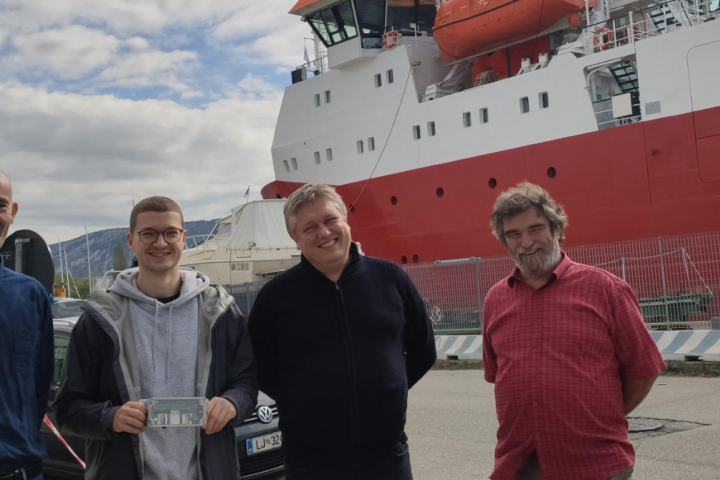
The Slovenian smart box, developed at the UL FE, has returned from Antarctica
How reliable are Global Navigation Satellite Systems (GNSS) when a ship sails through the harshest conditions on Earth? This question was answered by researchers from the Faculty of Electrical Engineering of the University of Ljubljana, the “Jožef Stefan” Institute, and the Faculty of Maritime Studies and Transport of the University of Ljubljana. On board the Italian icebreaker Laura Bassi, they carried out a 200-day research expedition. The collected data are crucial for developing the next generations of autonomous ships.
-

Assist. Prof. Dr. Meta Sterniša recipient of the Danubius Young Scientist Award
Assist. Prof. Dr. Meta Sterniša from the Department of Food Science and Technology at the Biotechnical Faculty of the University of Ljubljana is the recipient of the Danubius Young Scientist Award, which is presented to young researchers with outstanding achievements in their field. She received the award for her scientific contributions in food science and microbiology
-
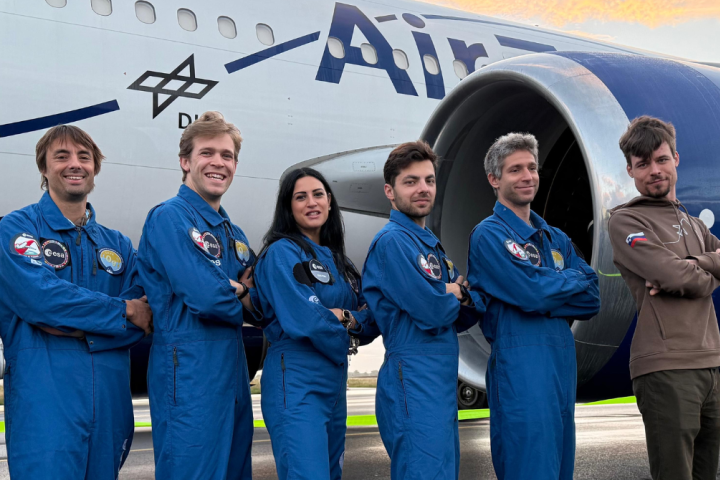
Slovenian Students Explore “Space Mayonnaise” in Microgravity
The CAVE 0g team from the University of Ljubljana studied the formation of emulsions in microgravity during the 87th parabolic flight campaign of the European Space Agency – a key step toward preparing food and medicine in space.
-

Prof. Dr Mitjan Kalin becomes the first European in two decades to receive the ASME Mayo D. Hersey Award
Prof. Dr Mitjan Kalin from the Faculty of Mechanical Engineering at the University of Ljubljana has become the first European in 20 years to receive the prestigious ASME Mayo D. Hersey Award – the highest academic honour in the field of tribology.
-

University of Ljubljana receives DGNB Gold pre-certificate for the new Veterinary Faculty building
The new building project of the Veterinary Faculty at the University of Ljubljana (UL VF), which will deliver state-of-the-art research and teaching facilities, has been awarded the Gold pre-certificate by the German Sustainable Building Council (DGNB).
-

Generative Artificial Intelligence Has Surpassed Smartphones and the Internet in Speed of Adoption
The number of generative artificial intelligence (GenAI) users in Slovenia is rapidly increasing. In one year, the number has doubled. Most users utilize ChatGPT, and usage is becoming increasingly frequent. More than half of the population uses GenAI weekly, and nearly a quarter use it daily. Despite growing usage, Slovenia still lags behind the most developed countries.
-
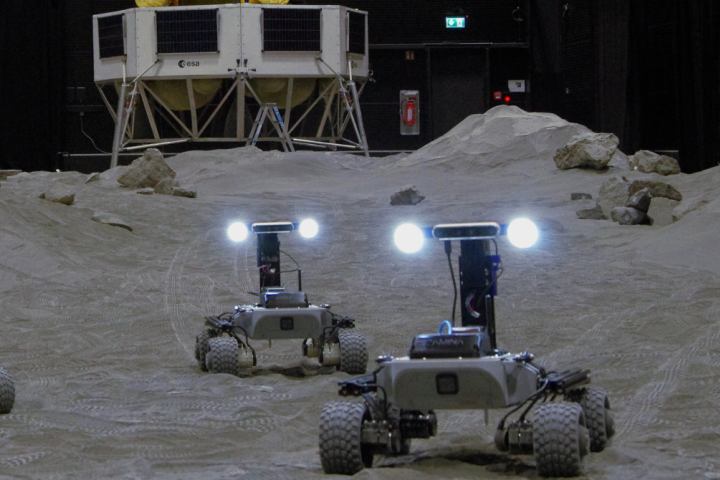
UL FS Develops Multi-Robot System for Lunar Surface Exploration
Researchers at the Faculty of Mechanical Engineering, University of Ljubljana, have developed an intelligent multi-robot system that could be used in the future for exploring the lunar surface. The system was successfully tested at the LUNA facility in Germany, which simulates lunar surface conditions.
-
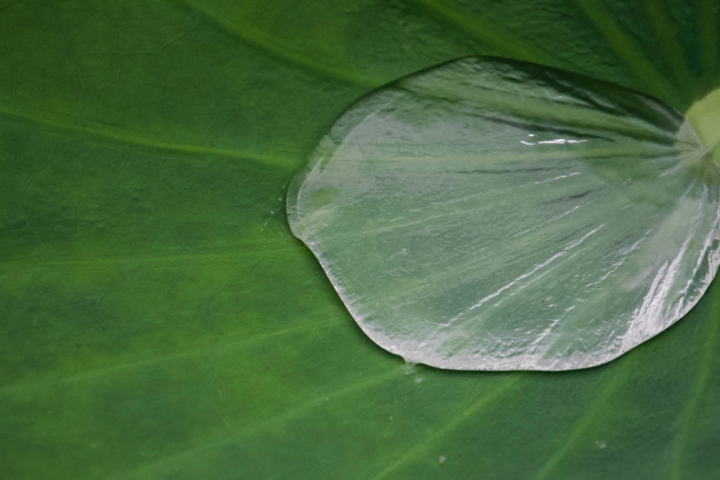
Can droplets reveal the pressure threshold of water-repellent surfaces?
Researchers from the Faculty of Mechanical Engineering at the University of Ljubljana developed a simple yet remarkably precise method that can determine, from a single drop of water, when superhydrophobic surfaces lose their water-repellent properties. This breakthrough will aid in the development of more durable water-repellent materials that can be used in industry, for example in cooling, self-cleaning, or corrosion protection.
-
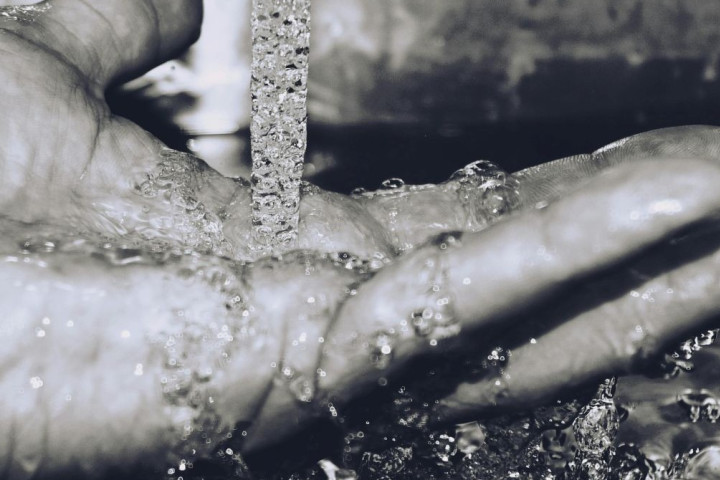
Microreactors of the Future for Efficient Wastewater Treatment Using Hydroxyl Radicals
The issue of wastewater treatment is becoming increasingly pressing in modern society, which is also reflected in the intensive research in this field. Conventional treatment methods are struggling to keep up with the growing diversity of pollutants that end up in various water bodies – both surface and groundwater. As a result, significant efforts are being invested in developing new technological approaches to address this challenge, with cavitation emerging as one of the promising technologies.
-

New Tools to Combat Deepfakes
In a world where trust in photos and videos is increasingly fragile, a significant breakthrough comes from the University of Ljubljana. Researchers from the Faculty of Computer and Information Science, in collaboration with experts from the Faculty of Electrical Engineering, have developed an advanced model capable of detecting digital forgeries with remarkable accuracy – even the most sophisticated ones created using state-of-the-art artificial intelligence techniques.
-
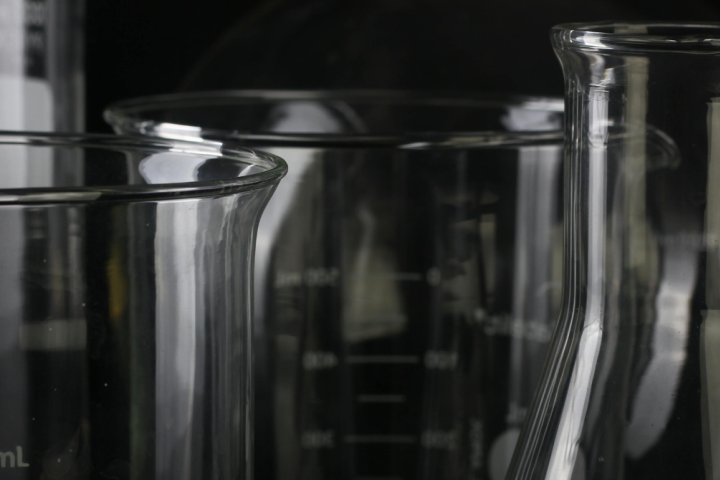
Dr. Liju Raju is a recipient of the MSCA 2024 Postdoctoral Fellowship at UL FKKT
Dr. Liju Raju, post-doctoral researcher at the University of Ljubljana, has been awarded the prestigious Marie Skłodowska-Curie Action (MSCA) postdoctoral fellowship for his project CHITOCAT. The research work will be conducted at the Faculty of Chemistry and Chemical Technology under the mentorship of Dr. Ross Jansen van Vuuren.
-

The University of Ljubljana will play a key role in establishing the Slovenian Artificial Intelligence Factory
Slovenia has secured European funding for the establishment of a new supercomputer and the Slovenian Artificial Intelligence Factory. The supercomputer will be tailored for building and utilizing artificial intelligence models, while the AI factory will help Slovenian experts create an ecosystem that provides key services for the development and application of artificial intelligence in one place for businesses, research organizations, and the public sector. The University of Ljubljana will play a significant role in this initiative.
-
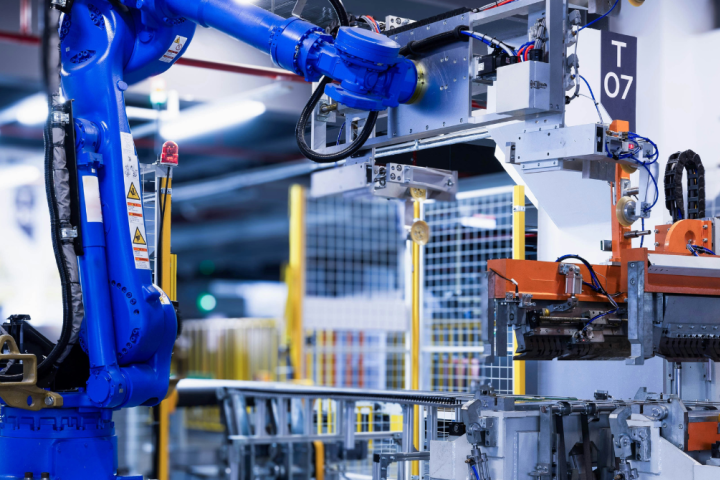
Revolution in manufacturing: Machine learning improves the precision of sheet metal stamping
Advancements in sheet metal stamping processes are creating new opportunities in industrial production. Researchers from the Faculty of Mechanical Engineering at the University of Ljubljana have developed an advanced method that uses machine learning to improve accuracy and reduce material waste.
-
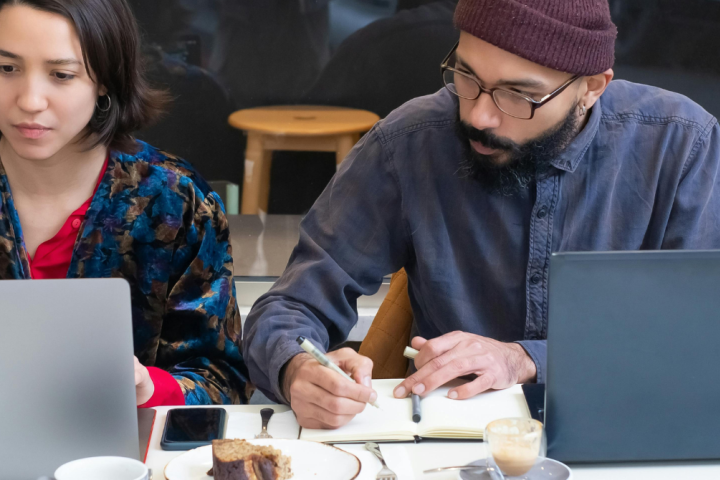
Digital Nomads Reveal the Future of Work: What Do Their Stories on Reddit Tell Us?
The way we work has changed significantly in recent years, and in the coming years, it will become even more digital, mobile, and tailored to individuals. Digital nomads play a crucial role in this transformation. What drives them to choose this lifestyle, how do they shape their careers, and in what ways do they build their networks? Answers to these questions are provided by a study, which included Professor Dr. Matej Černe from the School of Economics and Business at the University of Ljubljana, analyzing over 66,000 discussions on the Reddit forum Digital Nomad.
-
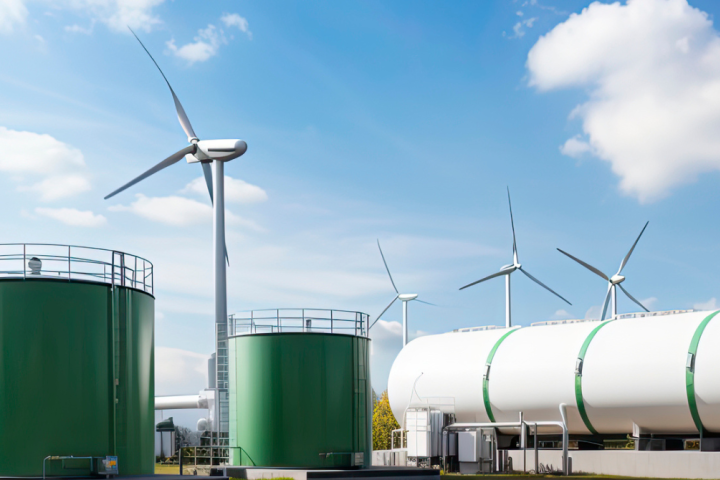
How nanoparticles for fuel cell applications continuously change
Proton exchange membrane fuel cells use hydrogen as a fuel and are one possible alternative to internal combustion engines that run on fossil fuels. The wider deployment of fuel cells, and thus the potential to reduce greenhouse gas emissions, is hampered by their cost. They require the expensive and scarce metal platinum to operate efficiently.
-

With Artificial Intelligence Towards Better Research in Digital Humanities
The Faculty of Computer and Information Science at the University of Ljubljana (UL FRI) has been successful in the Horizon Europe research and innovation program. It has secured €2.5 million for a five-year ERA Chair project – Artificial Intelligence for Digital Humanities (AI4DH). As part of the project, an interdisciplinary Centre of Excellence for Artificial Intelligence in Digital Humanities will be established.
